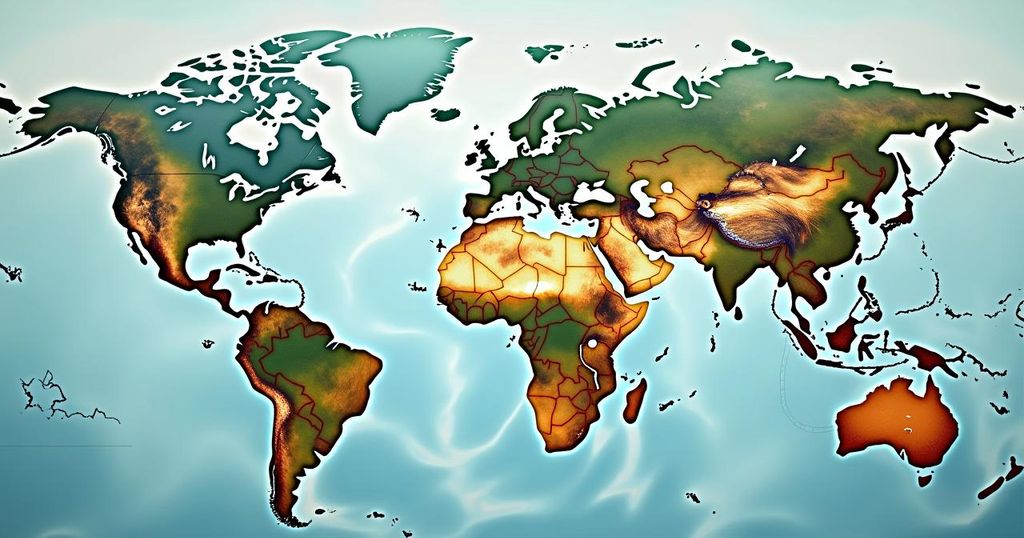Lawmakers in Argentina failed to overturn President Milei’s veto on public university funding, leading to protests against education cuts amidst inflation. UK Prime Minister Starmer affirmed British sovereignty over the Falkland Islands, while Ghanaian unions called off a strike against illegal gold mining after government talks promised increased regulation and support for the sector.
In Argentina, legislative actions have been thwarted as lawmakers were unable to override President Javier Milei’s veto on a proposed law aimed at funding public universities. This proposed legislation sought to increase salaries for university staff amidst soaring inflation rates exceeding 209%. The veto incited large protests in Buenos Aires, where thousands rallied for enhanced public school investments, highlighting the fact that approximately 80% of Argentine students enrolled in higher education attend public institutions. President Milei has characterized the bill as ‘irresponsible,’ claiming it lacks specific budget allocations, and has committed to prioritizing fiscal balance to combat the country’s current recession and rising poverty levels, where over 50% of the population is affected. Additionally, under Milei’s administration, funding cuts have extended beyond education to encompass healthcare and pensions. In the United Kingdom, Prime Minister Keir Starmer has reiterated that the Falkland Islands, as well as Gibraltar, will remain under British governance. This announcement followed a contentious parliamentary session in which the Labour Party, led by Starmer, returned ownership of the Chagos Islands to Mauritius to rectify historical injustices, triggering concerns from Conservative leaders regarding the potential for further territorial concessions. Starmer emphasized the personal significance of retaining control over the Falklands, a legacy tied to his uncle’s military service during the 1982 conflict against Argentina. Argentina has persistently claimed sovereignty over the Falklands, a contention that dates back to the military invasion ordered by dictator Leopoldo Galtieri. In Ghana, organized labor unions opposing illegal gold mining have decided to call off a planned strike following discussions with the government. President Nana Akufo-Addo assured union representatives that significant measures would be undertaken to bolster cleaning and safety efforts within the mining sector. Promises included a revocation of a law permitting mining activities in designated forest reserves and the deployment of military personnel to combat illegal mining operations near vital ecosystems. The unions framed the planned strike as a necessary protest against the severe environmental and humanitarian consequences inflicted by unregulated gold mining activities, which include pollution of water resources and unsafe working conditions.
Recent developments in Argentina, the UK, and Ghana highlight significant political and environmental issues affecting each territory. In Argentina, the funding and support for public education are critical issues amidst a backdrop of severe inflation and economic hardship. The Falkland Islands remain a contentious point of national pride and territorial sovereignty for both Argentina and the UK, with historical conflicts underpinning their current status. Ghana has been grappling with challenges posed by illegal gold mining, leading to harsh environmental and societal impacts, which have prompted organized labor actions.
In summary, these instances reflect ongoing struggles related to governance, sovereignty, and environmental stewardship across Argentina, the UK, and Ghana. Argentina’s educational crisis underlines the implications of recent political decisions on public services, while the UK’s claim over the Falklands remains a topic of national debate rooted in historical conflicts. In Ghana, the responses to illegal mining further underscore the necessity for robust regulatory frameworks to protect both the environment and the well-being of affected communities.
Original Source: nyunews.com






